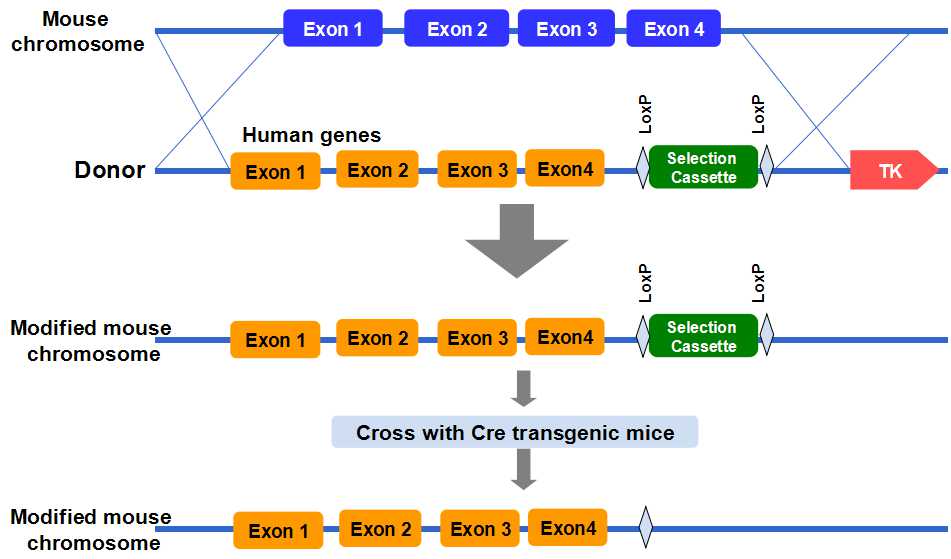Does The US Government Fund Transgender Mouse Studies? A Factual Analysis

Table of Contents
Understanding the Research Landscape: Sex vs. Gender in Animal Models
Defining Sex and Gender in Scientific Research
It's crucial to understand the distinction between biological sex and gender identity within the context of scientific research, especially when using animal models.
- Biological sex refers to an individual's chromosomes (XX or XY), hormones, and reproductive organs. In mice, as in humans, sex is determined at conception.
- Gender identity is a person's internal sense of being male, female, both, or neither. This concept, rooted in human experience and self-perception, is not directly translatable to animal models. Mice do not possess a conscious sense of gender identity.
Researchers use animal models, like mice, because they share genetic and physiological similarities with humans, making them valuable tools for studying various biological processes. However, it's crucial to remember the limitations of directly applying human gender concepts to animals. The complexities of human gender identity are not replicated in animal models.
Types of Relevant Research
Federally funded research often investigates aspects of sex and biology that might be misinterpreted as "transgender mouse studies." This research is vital for understanding fundamental biological processes and human health.
- Hormonal effects on development: Studies exploring the impact of hormones on sexual differentiation and development in mice.
- Sex chromosome anomalies: Research investigating the effects of variations in sex chromosomes (e.g., XXY) on development and physiology.
- Sexual differentiation: Investigations into the mechanisms that drive the development of male and female characteristics.
- Reproductive health: Research focused on understanding reproductive processes, fertility, and related disorders.
- Gender-related behaviors: Studies examining behaviors influenced by sex hormones or genetic factors, though not related to human gender identity.
Agencies like the National Institutes of Health (NIH) and the National Science Foundation (NSF) fund a vast array of research in these areas, utilizing various animal models.
Where the Money Goes: Analyzing Federal Funding Data
Accessing Public Funding Databases
To accurately assess US Government funding transgender-related research in animal models, you can consult public databases. The NIH RePORTER database (reporter.nih.gov) is a valuable resource.
- Search strategies: Use keywords like "sex differentiation," "hormone research in rodents," "sexual development," or "reproductive biology." Avoid the term "transgender" as it rarely appears in the context of animal model studies. Focusing on the biological processes under investigation yields more relevant results.
- Keyword challenges: Finding precise keyword matches for "transgender" research in animal models is challenging because the concept doesn't directly apply to animals. Instead, focus on the underlying biological mechanisms being studied.
Interpreting Research Abstracts
Critically evaluating research abstracts is essential to understand the study's true focus.
- Understanding jargon: Familiarize yourself with common scientific terminology to accurately interpret the methods and findings.
- Identifying methodology: Pay attention to the study design, the type of animal models used, and the specific biological questions being addressed.
- Avoiding sensationalism: Be wary of headlines or interpretations that oversimplify or distort the research findings. Look for evidence-based conclusions rather than emotionally charged statements.
Addressing Misinformation and Public Perception
The Role of Media Representation
Media coverage significantly influences public perception of scientific research. Misleading headlines or oversimplifications can distort the true nature of studies, leading to misunderstandings about government funding.
- Misleading headlines: Sensationalized headlines often use emotionally charged language that doesn't accurately reflect the research's focus.
- Oversimplification of findings: Complex scientific findings are often reduced to simplistic narratives, which can be misleading.
- Importance of media literacy: Developing critical thinking skills and being aware of potential biases in media reporting is crucial for understanding scientific research accurately.
Combating Misconceptions about Scientific Funding
Many misconceptions surround government funding of scientific research.
- Peer review process: All federally funded research undergoes a rigorous peer-review process to ensure quality and validity.
- Ethical considerations: Stringent ethical guidelines govern the use of animals in research, prioritizing animal welfare.
- Transparency in funding: Government agencies strive for transparency in funding decisions, making information available to the public.
Conclusion
In summary, while the US government funds extensive research related to sex, gender, and reproductive biology using animal models, the idea of direct funding for "transgender mouse studies" is often a misrepresentation or oversimplification of complex scientific inquiries. The research focuses on fundamental biological processes, not on applying human gender identity concepts to animals. Understanding the complexities of scientific research funding requires critical thinking and responsible information gathering. Don't rely on sensationalized headlines; instead, explore the actual data on US Government funding of transgender-related research in animal models to form your own informed opinion. Consult reputable sources and critically evaluate the information you find to avoid misinformation about government spending on scientific research.

Featured Posts
-
 Oilers Vs Sharks Nhl Game Predictions Betting Picks And Odds Analysis
May 10, 2025
Oilers Vs Sharks Nhl Game Predictions Betting Picks And Odds Analysis
May 10, 2025 -
 Transgender Rights The Impact Of Trumps Policies
May 10, 2025
Transgender Rights The Impact Of Trumps Policies
May 10, 2025 -
 Tragedie A Dijon Mort D Un Ouvrier Apres Une Chute D Un Immeuble
May 10, 2025
Tragedie A Dijon Mort D Un Ouvrier Apres Une Chute D Un Immeuble
May 10, 2025 -
 Projet De Tramway Dijon Concertation Et Decisions Futur
May 10, 2025
Projet De Tramway Dijon Concertation Et Decisions Futur
May 10, 2025 -
 Measles Outbreak In North Dakota School Quarantine For Unvaccinated Children
May 10, 2025
Measles Outbreak In North Dakota School Quarantine For Unvaccinated Children
May 10, 2025
